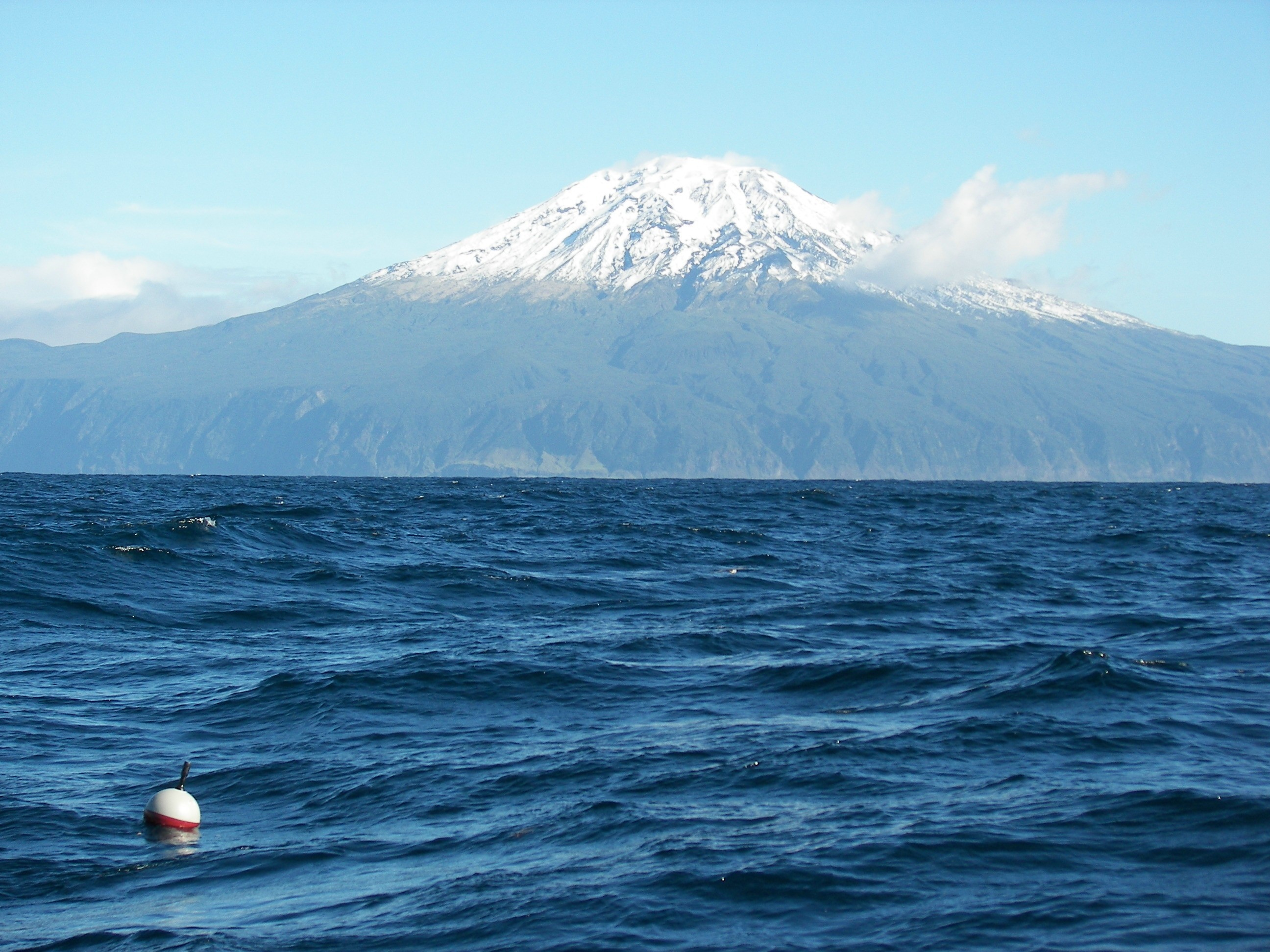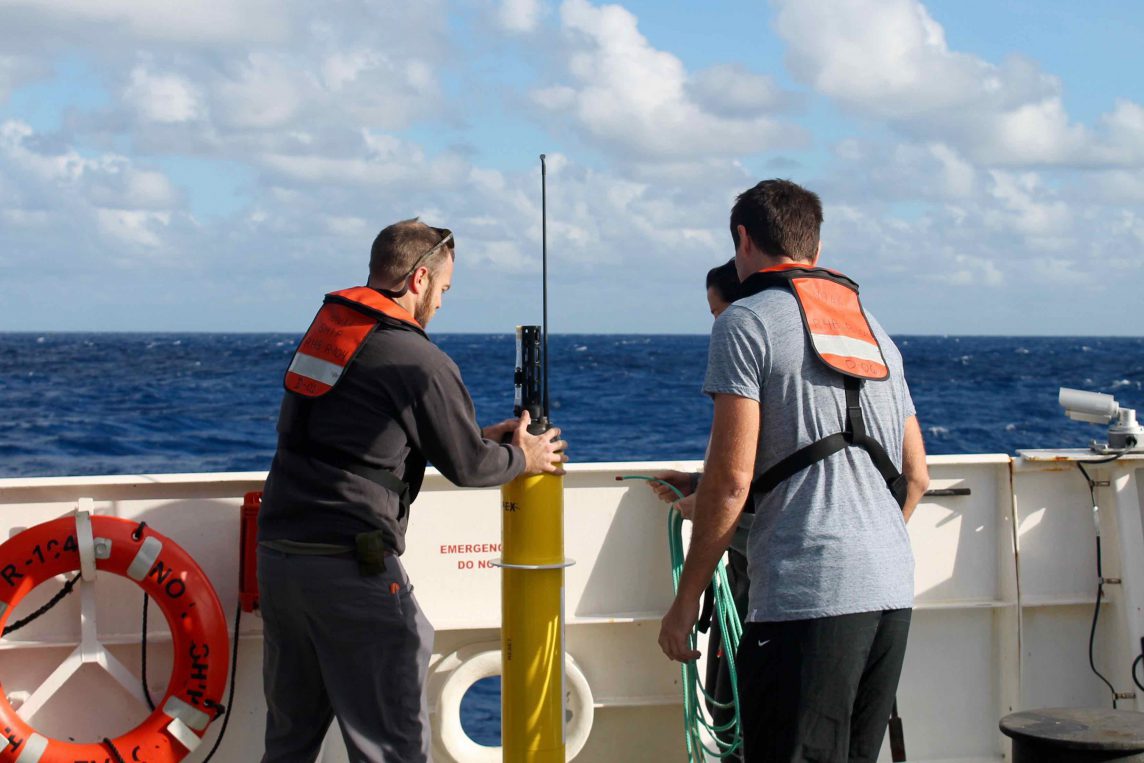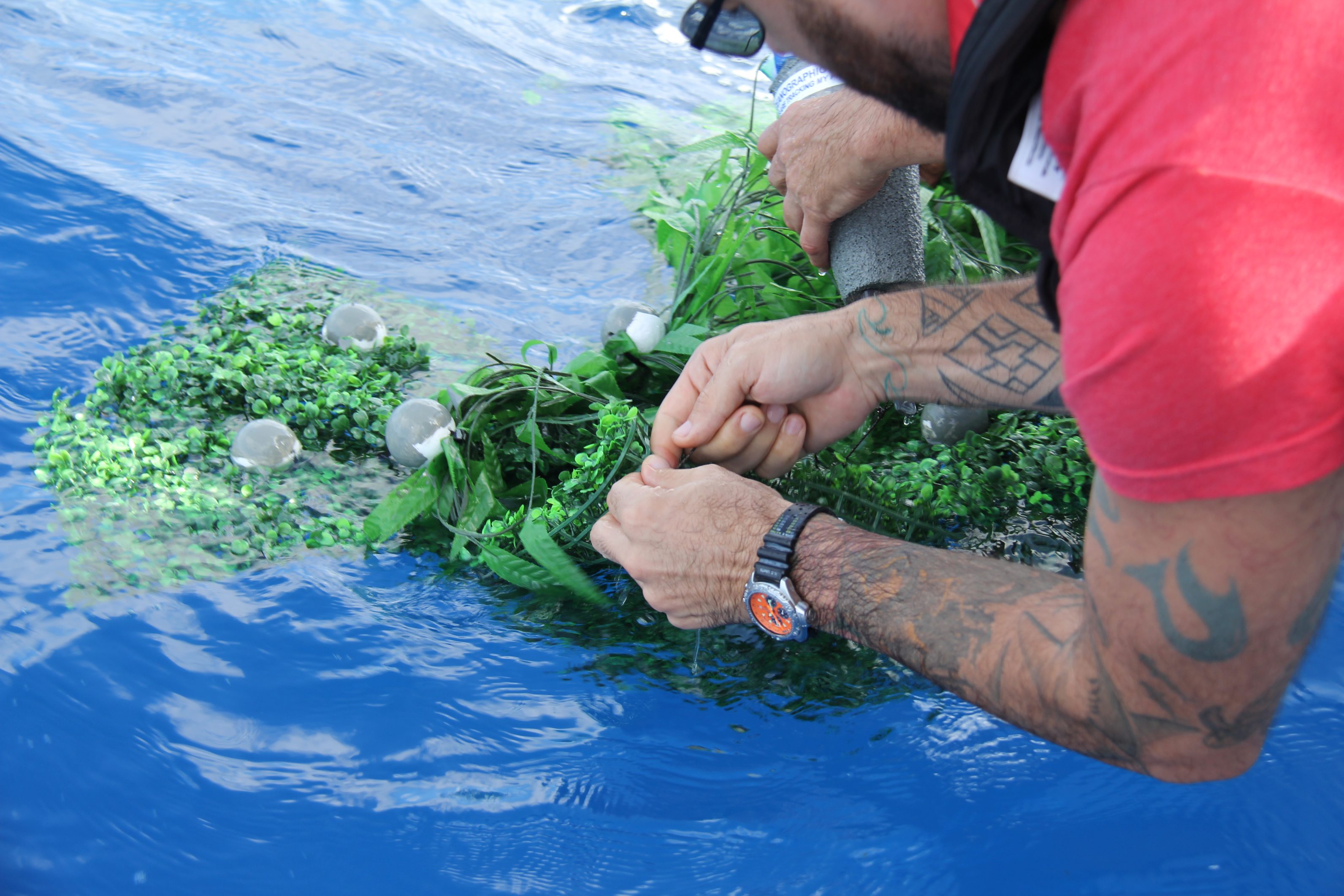NOAA’s Global Drifter Program is a globally collaborative research project that provides near real-time marine data for the world. It allows us to record data for weather forecasts, track decadal patterns, and pinpoint inter-annual climate variations like El Nino Southern Oscillation. Global drifters provide observational verification for weather models, calibrate satellite observations, and collect and transfer new data about the ocean temperature, currents and barometric pressure.
Argo Data Acquisition Center at AOML Surpasses One Million Profile Benchmark
Staff with the US Argo Data Acquisition Center (DAC) at AOML marked an important milestone this past February by processing the one millionth profile from Argo floats. The DAC team has been processing and quality controlling all of the raw data obtained from US-deployed Argo floats since 2001, with about 90,000 temperature-salinity profiles processed annually since 2007. These profiles have provided the global scientific community with an unprecedented record of the evolving state of the upper ocean, advancing understanding of the ocean’s role in world climate.
Tracking Marine Debris
Researchers at AOML, NESDIS CoastWatch, and the University of Miami are currently exploring how the distribution of marine debris is affected by both ocean currents and wind. During a recent experiment, scientists deployed several prototype drifters in the Florida Current off the coast of Miami to simulate commonly found debris of varying weights and shapes. These drifters carry GPS transmitters that provide their location four times per day.


